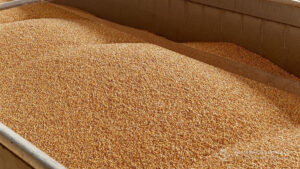
Ukraine has exported 12.04 mln tonnes of grains and pulses since the beginning of 2024-2025 marketing year (MY, June-July) as of October 14, 2024, including 1.593 mln tonnes shipped in October, the press service of the Ministry of Agrarian Policy and Food reported, citing the data of the State Customs Service.
According to the report, as of the same date in 2023, the total shipments were estimated at 6.676 mln tonnes, including 7 thsd tonnes in October.
In terms of crops, since the beginning of the current season, Ukraine has exported 6.894 mln tonnes of wheat (796 thsd tonnes in October), 1.575 mln tonnes of barley (252 thsd tonnes), 10.5 thsd tonnes of rye (3.1 thsd tonnes), and 3.302 mln tonnes of corn (538 thsd tonnes).
The total exports of Ukrainian flour since the beginning of the season as of October 14 are estimated at 21.5 thsd tonnes (2.6 thsd tonnes in October), including 19.4 thsd tonnes of wheat (2.1 thsd tonnes).
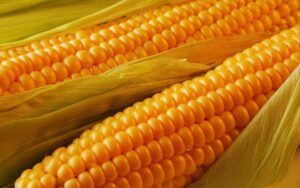
The U.S. Department of Agriculture (USDA) has lowered its forecast for corn exports from Ukraine this marketing year by 1 million tons to 23 million tons due to a 1 million ton decrease in the harvest estimate to 26.2 million tons.
The USDA has also downgraded its estimate of global corn production to 1 billion 217.19 million tons (-1.38 million tons compared to the September forecast) and global corn exports to 190.50 million tons (-0.87 million tons).
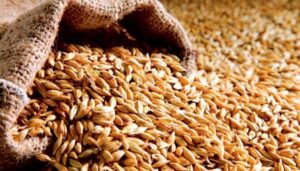
The U.S. Department of Agriculture (USDA) has raised its forecast for wheat exports from Ukraine in the 2024/2025 marketing year (MY, July 2024/June 2025) by another 1 million tons to 16.0 million tons.
As stated in the October USDA report on Friday evening, such revision was made due to an increase in the crop estimate from 22.3 million tons to 22.9 million tons, as well as a decrease in the estimate of domestic consumption from 7.0 million tons to 6.7 million tons and transitional residues from 1.09 million tons to 0.99 million tons.
The U.S. agency recalls that last MY the wheat harvest in Ukraine amounted to 23.0 million tons, exports – 18.58 million tons, while corn – 32.5 million tons and 29.6 million tons, respectively.
USDA forecasts world wheat production in the 2024/2025 season at 794.08 (-2.8 million tons to September forecast) and world exports at 215.82 million tons (-0.69 million tons).
The estimate of both world corn production to 1 billion 217.19 (-1.38 million tons to the September forecast) and world exports to 190.50 million tons (-0.87 million tons) has also been downgraded.
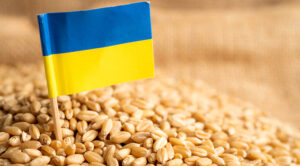
Ukraine has exported 10.647 mln tonnes of grains and pulses since the beginning of the 2024-2024 marketing year (July-June) as of October 2, 197 mln tonnes of which were shipped on the first day of the month, the press service of the Ministry of Agrarian Policy and Food reported, citing the State Customs Service.
According to the report, as of the same date last year, the total shipments were estimated at 6.676 mln tons, including 7 thsd tonnes in October.
In terms of crops, since the beginning of the current season, 6.207 mln tons of wheat have been exported (a year earlier, the figure was 3.342 mln tons), barley – 1.325 mln tons (622 thsd tonnes), rye – 7.5 thsd tonnes (0.7 thsd tonnes), corn – 2.849 mln tons (2.689 mln tons).
The total exports of Ukrainian flour since the beginning of the season as of October 2 are estimated at 19.9 thsd tonnes (36.4 thsd tonnes), including 17.7 thsd tonnes (35.4 thsd tonnes) of wheat.

Ukraine exported 99.3 million tons of goods worth $28.9 billion in January-September 2024, up 36.2% in commodity terms and 6% in monetary terms compared to January-September 2023, Deputy Minister of Economy and Trade Representative of Ukraine Taras Kachka said.
According to him, in the third quarter of this year, exports amounted to 28.2 million tons, which is 36% more than in the third quarter of 2023, and the increase in monetary terms is also significant – 20.1%, it increased to $9.3 billion.
“There is also a positive trend in September-24 compared to August-24. There is a 12.6% decrease in the weight of exports, but the largest revenue for the quarter is $3.2 billion. This means that we are increasing exports of goods at the best price. This all means that exports are coming to life and are recovering at a fairly active pace,” Kachka wrote on Facebook on Tuesday.
He noted that among the exported goods, metallurgy is one of the best performers: exports of semi-finished products in commodity terms increased by 65.6% to 1.5 million tons in nine months, flat products by 86.2% to 1.1 million tons, and pipes by more than half to 338 thousand tons. Iron ore exports almost doubled, up 99.6% to 25.2 million tons.
Kachka added that cement exports are also growing: 1.3 million tons, up 31% year-on-year.
In the agricultural sector, corn (25.2 million tons exported, up 16.2%) and wheat (16 million tons, up 42.4%) remained the leaders in terms of volumes over the three quarters.
In addition, since the beginning of the year, Ukraine has already exported 4.6 million tons of sunflower oil and 3.6 million tons of meal.
Poultry exports remain stable – 334 thousand tons for 9 months, while in monetary terms there was an increase of 15% to $708 million.
“But the most interesting food product is juices: 82 thousand tons and $160 million. The growth was 65% in volume and 95.5% in value. There is also growth in the confectionery industry – cookies – $190 million (+29%), chocolate – $169 million (+38%), caramels – $151 million (+14%),” the Deputy Minister emphasized.
According to him, in September, the sugar production season began and sugar exports resumed. In September, Ukraine exported 24.7 thousand tons worth $127 million. In general, since the beginning of the year, sugar exports have already amounted to 476 thousand tons for $282 million, which is 60% more than in the same period last year.
As for imports, they amounted to $49.2 billion in January-September, Kachka said.
Most of the money was spent on oil and oil products ($5.1 billion), cars ($3.27 billion), medicines ($1.4 billion), phones/smartphones/tablets ($904 million), UAVs ($904 million), and electricity ($527 million).
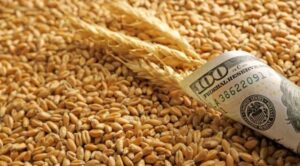
As of September 25, Ukraine exported 9.764 mln tonnes of grains and pulses since the beginning of 2024-2025 marketing year (MY, July-June), of which 2.297 mln tonnes were shipped this month, the press service of the Ministry of Agrarian Policy and Food reported.
According to the report, as of the same date last year, the total shipments amounted to 6.152 million tons, including 1.565 million tons in September.
In terms of crops, since the beginning of the current season, Ukraine has exported 5.591 million tons of wheat, including 1.808 million tons in September, 1.245 million tons (132 thousand tons) of barley, 7.5 thousand tons (7.2 thousand tons) of rye, and 2.664 million tons (328 thousand tons) of corn.
The total exports of Ukrainian flour since the beginning of the season are estimated at 17.4 thsd tonnes (5.5 thsd tonnes in September), including 15.7 thsd tonnes of wheat (4.8 thsd tonnes).